By Marsha Philpot (Marsha Music):
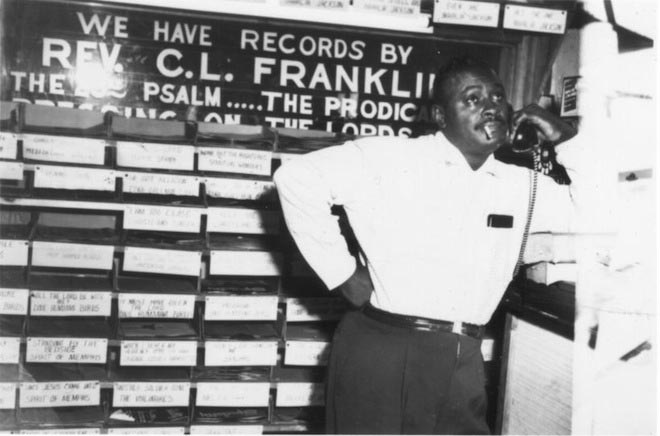
My father, the late Joe Von Battle, was an important mid-century recorder and producer of blues and gospel music in Detroit, from 1945 until 1967. He has been called the “Chess of Detroit”, referring to the iconic Chicago Record company, and is regarded by many as a cornerstone in the building of the “Detroit Sound.”
Joe Von Battle is believed to be the first African-American independent record producer in the U.S. during the post WWII era. He owned the legendary Joe’s Record Shop, at 3530 Hastings Street. There is no disputing his significance. He was a producer of Gospel, Blues, early R&B, and what came to be known as Rock ‘N Roll.
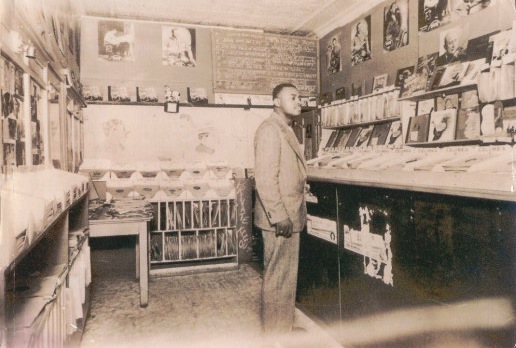
Over the years he recorded legendary artists such as John Lee Hooker, Little Willie John, Johnnie Bassett, the Violinaires, the Serenaders, Little Sammy Bryant, Little Sonny, Jackie Wilson, Sonny Boy Williamson III (aka Rice Miller), and many, many others in his studio in the back of the shop, including a classic called The Hucklebuck by Paul Williams. He even recorded a Civil Rights song called “The Alabama Bus”.
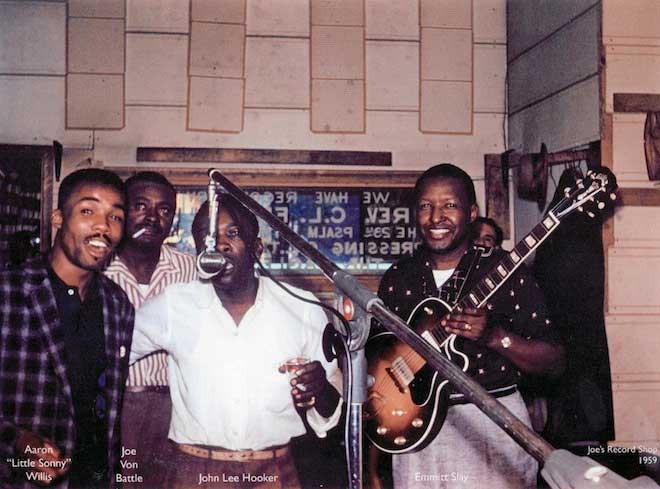
After coming to Detroit from Macon, Georgia, Joe worked for a while at the Eastern Market and dug ditches for the gas company. He later worked at the Hudson Motor Car Co. and, for a time, worked two jobs, like many Detroiters in those times.
Family history says that in 1945, a Jewish widow who was selling out her business offered him a deal on her Hastings Street storefront, and Joe soon opened up shop. He gathered up all of the record in his house – much to his kids chagrin – and started selling records.
Hastings Street was the western border of and main thoroughfare of Black Bottom. It was the community most African Americans coming to Detroit from the South were relegated, due to segregation. The demolition of Detroit’s Black Bottom started in the 1940’s. However, Hastings St. survived until about 1960. The record shop was then demolished to create the I-375, aka Chrysler Freeway. After the destruction of Hastings, the record shop moved, with other surviving businesses, to the West Side of Detroit, on 12th St.
In a 1948 interview with the Michigan Chronicle, Battle said, “I saw a man putting a ‘closed’ sign over an establishment, inquired, and found myself in business – selling records from my personal collection for 25 cents.” He became known near and far in Black music circles of the time as “The Mighty Joe Von Battle“.
Down Hastings Street was New Bethel Baptist Church, and Joe Von Battle
began hearing about the extraordinary preaching of the Reverend C.L. Franklin (father of Aretha)… My father heard about Franklin’s gifts as preacher and singer, and he began visiting the church to hear “the man with the million dollar voice.”
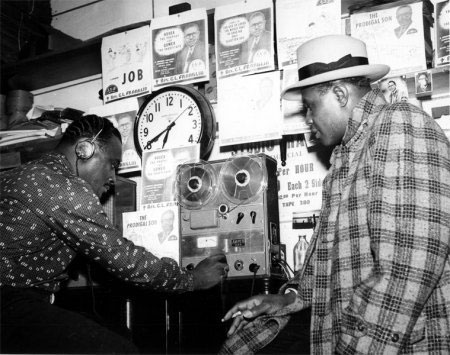
Joe Von Battle (L) and Rev. C.L. Franklin (R) in Joe’s recording studio in the back of the record shop 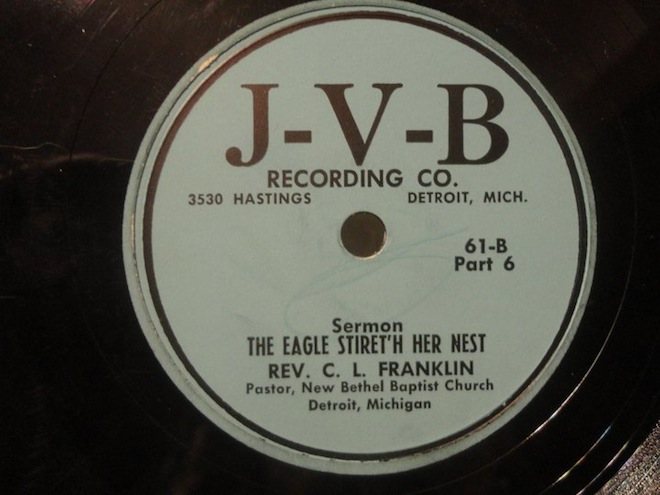
Sermon record by C.L. Franklin
Joe Von Battle was the sole producer/recorder of the sermons of Rev. Franklin, and this was a relationship – and friendship – that was to last through 75+ albums and records, for many years.
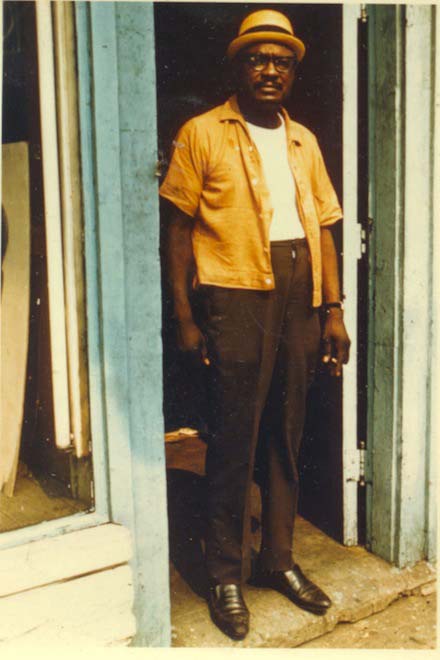
What he had was a magnetic personality, an ability to discern talent in others, a fascination with recorded sound – and a love of making money. My father’s shop was the place for hanging out, with folks like Jackie Wilson, impresario Sunny Wilson, B. B. King, and some of the last of the old “Blues Boys”.
Our father’s Blues friends were a part of our life. Wilson Pickett laid the sod in our front yard in Highland Park and taught my younger brother Darryl how to push the giant roller over the new grass. Famous blues men helped my father do repairs on his house and shared a drink in the back yard. To us though, they were all just Daddy’s friends from “Down South”.
On many Sunday nights, Darryl would go with my father to New Bethel Baptist Church, now on Linwood on the West Side, just like my father’s oldest son, Joe, before him on Hastings, dragging the mics and tape recorder in the big leather case to record the next homiletic masterpiece by “Frank”, as my father called Rev. C.L. Franklin.
After the mics and tape recorder were set up, my brother would sit behind the pulpit with the deacons, his legs too short to reach the floor, dangling from the big chairs on the altar. Then they all set to listening to Rev. Franklin whoop and sing and teach the urban Gospel (though often, my little brother would fall asleep in the middle of the making of music history).
In 1960, after Hastings street became urban and got renewed into the Chrysler Freeway, my father was forced to move his record shop from the East Side of Detroit to the West, across town to 12th street.
The beginning of the end came on July 23, 1967; a wave of destruction and police violence made it’s way down 12th Street. That wave became known as Detroit’s 67’ Riots – or as “The Rebellion”. My father’s record shop was in its path. But that is a whole ‘nother story.
I think that Joe Von Battle really died the day he returned to his shop, to trudge through mounds of charred and melted records and fire-hose soaked reel-to reel tapes, unwound and slithering like water snakes; thousands of songs, sounds and voices of an era, most never pressed onto records – gone forever.
Even though music had moved on to the new Motown sounds and beyond, and he was embittered with life and addled with drink, he always understood the importance of what he had done. He was proud of what he had captured in those long, brown ribbons of celluloid tape. It was more than the ending of an era for African American music; it was the beginning of another.
I remember many a Saturday afternoon in the later days of the shop, affixing labels to records, unloading them from boxes, and always, playing all the music we wanted and doing the Shing-a-ling and Boo-ga-loo in the middle of the floor, to the delight of the customers and the chagrin of my father, who wanted us to get back to work and sell records (ignoring the fact that, dancing was the best way to sell them).
All of my life, I was accustomed to my father being called, “The Mighty Joe Battle”; in fact he often referred to himself that way, only half in jest. The late Famous Coachman, the grand Blues man of Detroit, always called my father “The Legendary Joe Von Battle“.
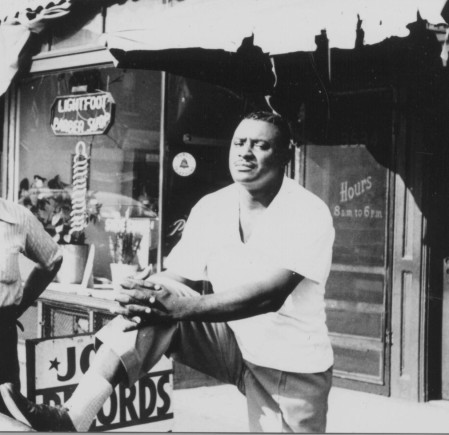
To read more click HERE!
Marsha Music is a music historian based in Detroit who is featured in Family Pictures USA!
Check out this video of her performing at the Detroit Symphony Orchestra (DSO) for Symphony in D with her poem ‘Memories and Dreams’, starts at 13:40

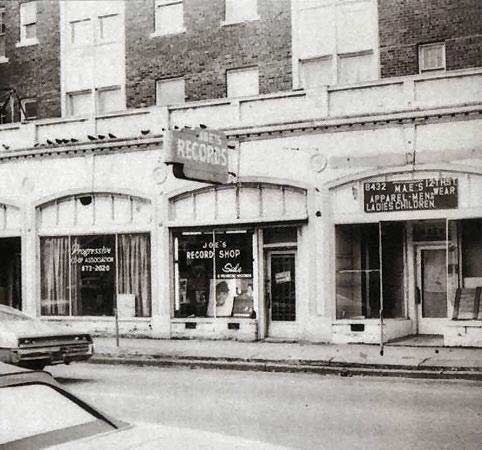
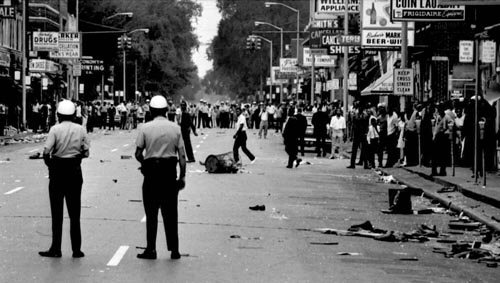
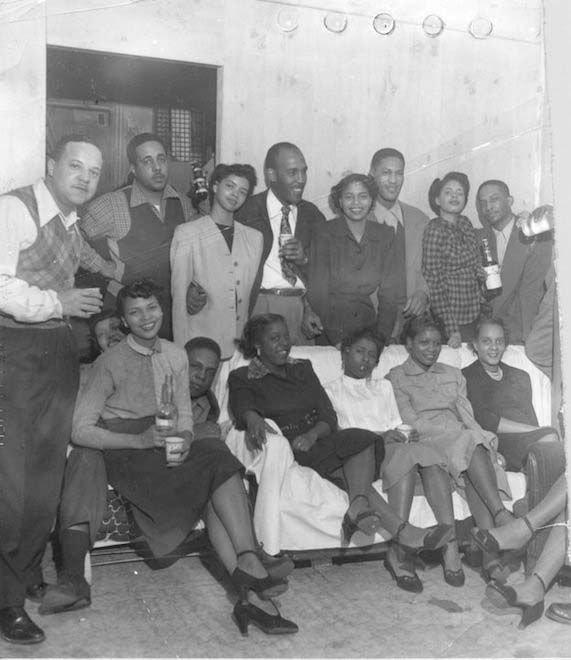
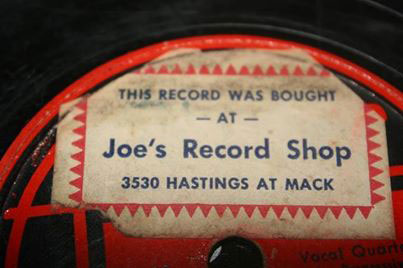
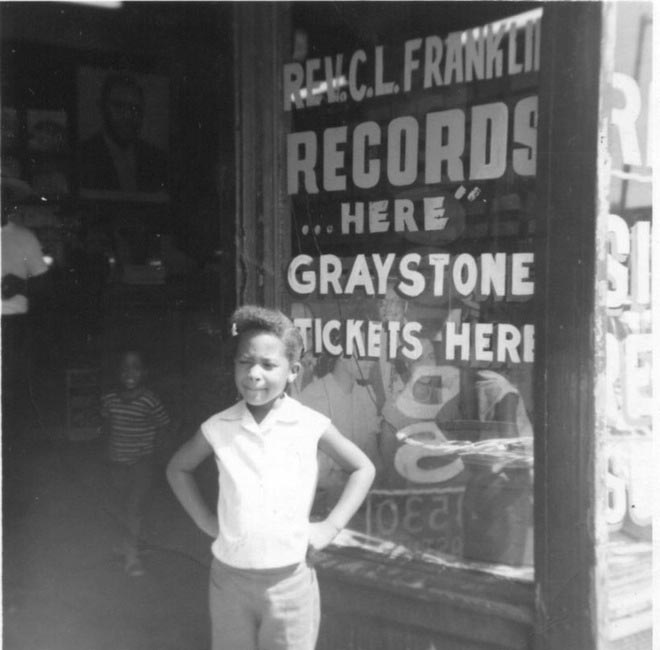

No comments yet.